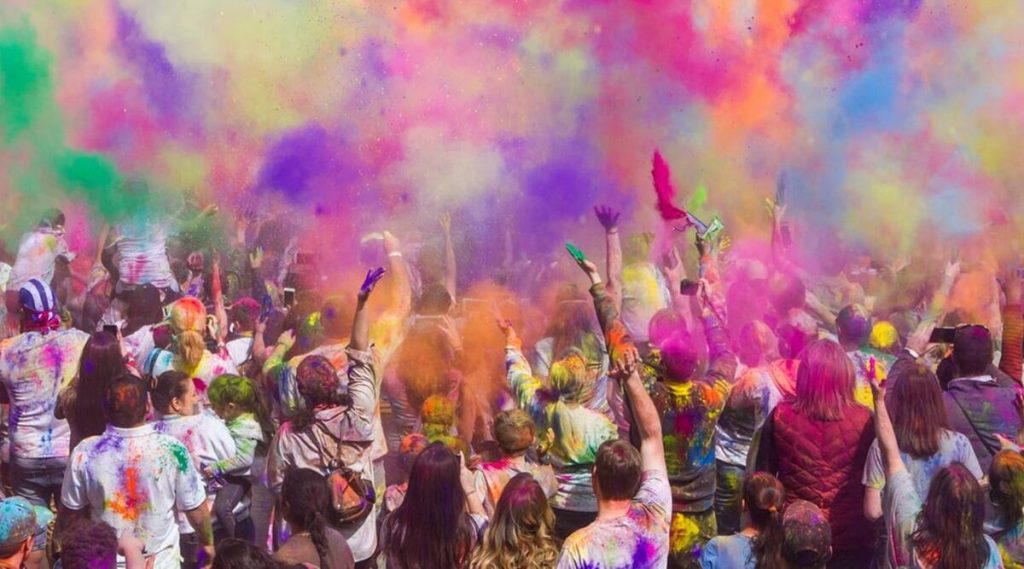In schools, and in our national calendar, there are many hospitals missing. Even if they aren’t in the curriculum, it doesn’t mean you can’t design speech therapy activities around them! This will help your students from multicultural backgrounds feel their traditions are respected and celebrated. Here are a few holidays you can incorporate into your speech therapy activities.
Ramadan and Eid Al-Fitr

Ramadan is the ninth month of the Islamic lunar calendar. During this month, Muslims fast every day from sunup to sundown. People participating in Ramadan will eat a meal before sunrise (suhoor) and a meal at sundown (iftar). Here is a description of the meaning of Ramadan:
“It was in the month of Ramadan that the Quran was revealed as guidance for humanity, clear messages giving guidance and distinguishing between right and wrong. So any one of you who is present that month should fast, and anyone who is ill or on a journey should make up for the lost days by fasting on other days later. God wants ease for you, not hardship. He wants you to complete the prescribed period and to glorify Him for having guided you, so that you may be thankful.” (Qur’an 2:185)”
Eid Al-Fitr marks the end of Ramadan. Typically, a celebration looks like this:
“The day starts with performing a special prayer service at the mosque, known as salat al-eid. This includes performance of the Eid salat followed by a sermon from the imam. Many Muslims attend along with their families and children, dressing in their best clothes. Some Muslims, in addition to paying the required zakat al-fitr, a unique alms-tax for the needy on Eid, perform additional acts of charity on this day. Eid al-Fitr is also a time to visit friends and relatives, and many Muslims celebrate with their families for two or three days. Children receive new clothes, jewelry, toys and other gifts, and parents inculcate in their children the importance of observing the fast and serving God in this month, in addition to rejoicing in celebrations and festivities with friends, family, and the broader community.”
To incorporate Ramadan and Eid into your speech therapy activities, first make sure you take into account the fact that some students may be fasting, and this can affect their academic performance and mood. Beyond that, the link below has many activities you can use in your speech and language sessions:
Holi

This is an especially fun Hindu celebration. Holi marks the beginning of spring, and is also known as “The Festival of Colors”. People have colored powder that they throw on each other. “Children use toy objects to put paint on friends and family. They do this because when everyone is covered in paint, it symbolizes that there is no class distinction and everyone is the same. Holi used to celebrate fertility and harvest, but the holiday also now honors Hindu legends.”
You could easily adapt the toy object activity for a fun reward after completing different speech therapy activities (e.g. sequencing or vocabulary based, etc.) Here are some activities to use in your speech and language sessions:
India Holi Worksheets & Teaching Resources | Teachers Pay Teachers
Source: Hindu Holidays | Sutter Health
Chinese New Year

Chinese New Year is also known as the Spring Festival in the Lunar New Year. It marks a new year, the end of winter, and the desire for a new life. It is usually celebrated with “putting up decorations, eating reunion dinner with family on New Year’s Eve, firecrackers and fireworks, and giving red envelopes and other gifts.”
Let students decorate your speech room as part of your lessons. A beneficial activity could be to match symbolic items involved with this holidays, such as the different animals and foods. The concepts of lucky and unlucky are great language terms to work on and explain.
With all these holidays, make sure to provide the appropriate amount of context. If a child celebrates the holiday, make it more about them sharing their own experiences with the holiday, especially if they are working on a narrative goal.
These are just a small sampling of a few holidays, and I will be doing an extension post in the future!
What are some ways you incorporate multicultural holidays into your speech therapy activities?
Come back tomorrow to learn more about cultural sensitivity as an SLP. For more cultural sensitivity tips, make sure to subscribe to my SLP Survival Newsletter!

